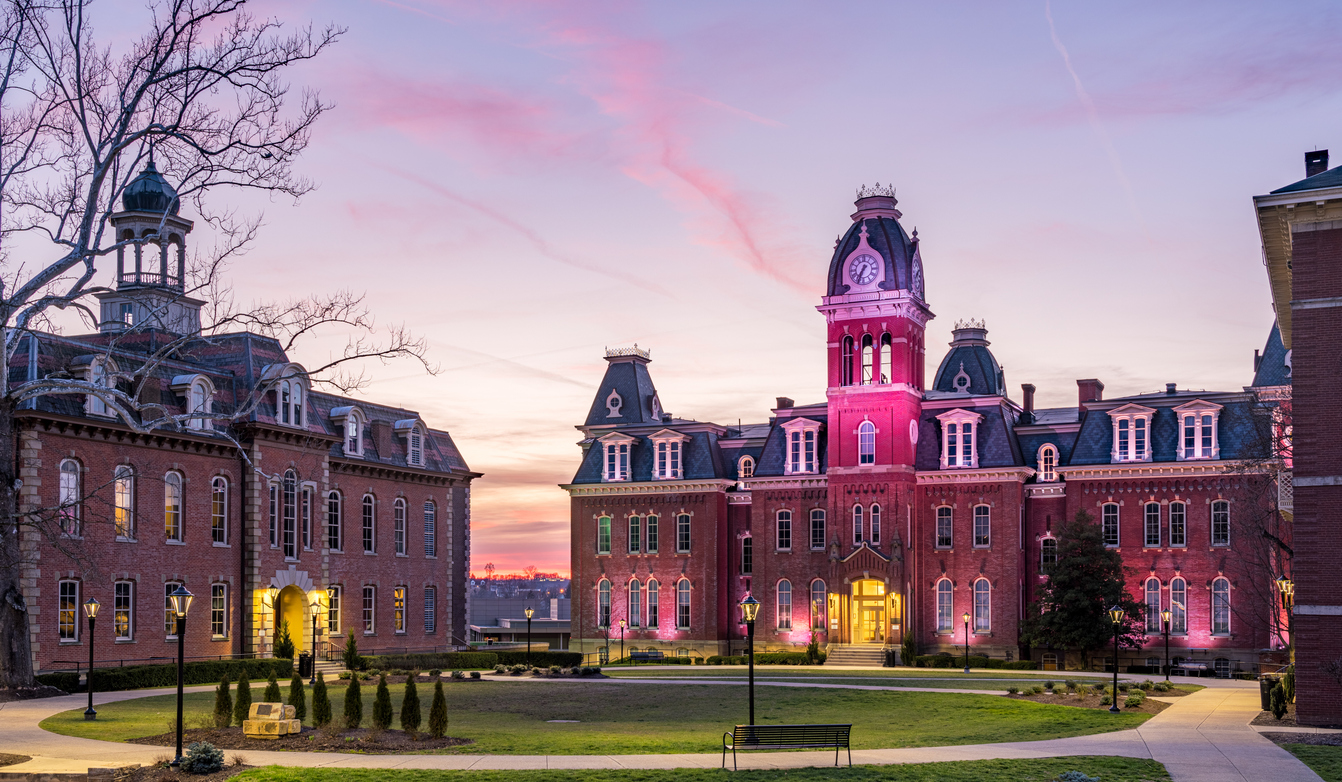- History and Background of the Fulbright-Nehru Scholarship
- Objectives of the Fulbright-Nehru Scholarship
- Eligibility Criteria for the Fulbright-Nehru Scholarship
- Fields of Study and Research Areas Covered by the Fulbright-Nehru Scholarship
- Application Process for the Fulbright-Nehru Scholarship
- Fulbright-Nehru Scholarship Selection Criteria and Tips
- Fulbright-Nehru Scholarship: Benefits and Opportunities
- Life as a Fulbright-Nehru Scholar: Navigating Challenges and Maximizing Opportunities
- Conclusion

In the realm of international education, few opportunities hold as much prestige and promise as the Fulbright-Nehru Scholarship. This program, a cornerstone of academic and cultural exchange between India and the United States, opens doors for ambitious Indian students, scholars, and professionals seeking to expand their horizons in American universities. This blog aims to shed light on every facet of the Fulbright-Nehru Scholarship, offering a detailed guide for those aspiring to be a part of this esteemed program.
The scholarship not only offers financial support but also a platform for cultural exchange, professional growth, and the opportunity to be part of an illustrious alumni network. Whether you are at the cusp of applying or are still contemplating this opportunity, our blog serves as a comprehensive resource to help you understand the impact and significance of the Fulbright-Nehru Scholarship in shaping future leaders and innovators. Join us as we embark on this informative journey, unraveling the potential that the Fulbright-Nehru Scholarship holds for the brightest minds from India.
Experience the best affordable education in USA and get up to 3 years post-study work visa. Network with alumni from diverse backgrounds and land your dream job.
History and Background of the Fulbright-Nehru Scholarship
The Inception and Evolution of a Visionary Idea
The Fulbright-Nehru Scholarship, as a part of the broader Fulbright Program, has its genesis in the aftermath of World War II, a period marked by a global yearning for peace and mutual understanding. The Fulbright Program, conceptualized by Senator J. William Fulbright in 1946, was born out of the proceeds from the sale of surplus war property. This innovative approach to using resources for educational exchange laid the foundation for what would become one of the most prestigious international scholarship programs.
Jawaharlal Nehru’s Vision and Indo-U.S. Educational Synergy
The integration of the Nehru component into the Fulbright Program was not just a diplomatic gesture but also a reflection of Nehru’s vision for a newly independent India. Nehru, a staunch advocate for education and intellectual exchange, believed in the power of learning to bridge cultural and national divides. By naming the scholarship after him, the program honored his commitment to education and his aspiration to strengthen India’s global ties, particularly with the United States.
The Fulbright-Nehru Scholarship: A Symbol of Bilateral Cooperation
The administration of the Fulbright-Nehru Scholarship by the United States-India Educational Foundation (USIEF) alongside the U.S. Department of State’s Bureau of Educational and Cultural Affairs is a testament to the robust educational and cultural relationship between the U.S. and India. This partnership underscores the shared democratic values and mutual respect that form the bedrock of the U.S.-India relationship. The scholarship program serves as a dynamic platform for intellectual exchange, fostering a deeper understanding between the two nations.
Adapting to Changing Educational Landscapes
Over the decades, the Fulbright-Nehru Scholarship has dynamically evolved, expanding its reach to encompass a wide array of academic disciplines and professional pursuits. This evolution reflects the changing educational needs and global trends, ensuring that the scholarship remains a relevant and potent tool for international education and collaboration. The program’s flexibility and adaptability have been key in maintaining its status as a highly sought-after scholarship for Indian citizens.
The Impact and Legacy of the Fulbright-Nehru Program
The enduring legacy of the Fulbright-Nehru Scholarship is vividly illustrated in the achievements of its alumni. These individuals, having benefited from the rich academic and cultural experiences in the United States, have contributed significantly to various sectors, including academia, industry, arts, and public service, both within India and on the global stage. The alumni network, thus, stands as a living testament to the program’s success in nurturing leaders and innovators who continue to make a difference in the world.
Objectives of the Fulbright-Nehru Scholarship
Fostering Academic and Cultural Exchange: The Core Mission
At the heart of the Fulbright-Nehru Scholarship is the mission to promote mutual understanding between the people of India and the United States through academic and cultural exchange. This program is designed not just to support outstanding scholars but also to facilitate a cross-cultural dialogue that enriches both nations. By enabling Indian students and professionals to study, research, and teach in the U.S., the scholarship aims to build bridges of knowledge and understanding, which are vital in today’s interconnected world.
Strengthening U.S.-India Relations through Education
The Fulbright-Nehru Scholarship plays a pivotal role in strengthening the educational and cultural ties between India and the United States. It provides a platform for Indian scholars to engage with their American counterparts, fostering collaborations and partnerships that extend beyond the tenure of the scholarship. These interactions and shared experiences contribute significantly to the broader goal of enhancing bilateral relations between the two countries.
Empowering Indian Scholars and Educators
A primary objective of the Fulbright-Nehru Scholarship is to empower Indian scholars, educators, and professionals by providing them with opportunities to pursue higher education and advanced research in the United States. The program is tailored to enable them to gain new academic perspectives, enhance their expertise, and develop skills that are beneficial both personally and professionally. The scholarship is not just an investment in the individuals but also in the broader academic and professional communities they represent and will contribute to upon their return.
Promoting Leadership and Professional Development
The Fulbright-Nehru Scholarship is more than an academic grant; it is a catalyst for personal and professional development. Recipients are encouraged to develop leadership qualities and a global perspective, which are essential in today’s world. The program seeks to nurture leaders who will go on to make significant contributions in their respective fields and play a role in addressing global challenges.
Encouraging Diverse Fields of Study and Research
The scholarship supports a wide range of fields and disciplines, reflecting the diverse academic interests and professional needs of Indian scholars. From traditional areas of study to emerging fields, the program encourages applicants to pursue research and study in subjects that not only align with their career goals but also have the potential to contribute to societal progress.
Building a Global Community of Scholars
By being part of the Fulbright-Nehru program, scholars join an esteemed global community of Fulbright alumni. This network provides a platform for ongoing collaboration, exchange of ideas, and a shared commitment to fostering international understanding. The connections and friendships formed during the scholarship often last a lifetime and extend the impact of the program far beyond its duration.
Eligibility Criteria for the Fulbright-Nehru Scholarship
A Closer Look at the Prerequisites for Aspiring Fulbright-Nehru Scholars
The Fulbright-Nehru Scholarship, with its prestigious standing in the academic world, sets forth a comprehensive set of eligibility criteria. These criteria are designed to identify candidates who not only exhibit academic excellence but also embody the values and objectives of the Fulbright program. Let’s delve deeper into these prerequisites to help prospective applicants fully understand and meet the requirements.
Academic Qualifications: Setting the Academic Bar
- Educational Credentials: The scholarship mandates specific educational qualifications depending on the fellowship type. For instance, applicants for the Master’s Fellowships should have completed a U.S. equivalent bachelor’s degree, while those applying for Doctoral Research Fellowships should possess a master’s degree or equivalent.
- Academic Record: A strong academic record is crucial. This doesn’t just mean high grades but also a demonstrated passion and commitment to the chosen field of study.
- Field of Study Alignment: The program covers a broad spectrum of fields, yet it’s vital for applicants to align their proposed area of study with the scholarship’s current focus areas, which can vary annually based on bilateral educational priorities.
Professional Experience: Beyond the Classroom
- Relevant Experience: For fellowships targeting professionals and researchers, significant work experience in the relevant field can be a deciding factor. This experience should reflect not just duration but depth, showcasing the applicant’s contributions and learning.
- Leadership and Community Impact: The scholarship seeks individuals who have shown potential for leadership and have made an impact in their professional or community settings. This could be through innovative projects, leadership roles, or significant contributions to their field.
Language Proficiency: Ensuring Effective Communication
- English Language Skills: Proficiency in English is non-negotiable, as the program involves studying or conducting research in an English-speaking environment. This is typically assessed through standardized tests like TOEFL or IELTS, though specific requirements may vary.
Personal Attributes: The Fulbright-Nehru Personality
- Interpersonal Skills: Qualities such as adaptability, cultural sensitivity, and a demonstrated interest in fostering mutual understanding between nations are highly valued. These traits are essential for ambassadors of the Fulbright-Nehru program.
- Intent to Return: A clear intention to return to India after the completion of the scholarship is crucial. The program aims to enrich the Indian academic and professional landscape with the experiences and knowledge gained in the U.S.
Specific Criteria for Different Fellowships
- Diverse Fellowship Requirements: The Fulbright-Nehru umbrella includes various fellowships, each tailored to different academic and professional stages. Applicants need to carefully review the specific criteria for the fellowship they are interested in.
- Quality of Research Proposals: For research-focused scholarships, a well-crafted research proposal is key. This proposal should not only demonstrate academic rigor but also relevance to the field and potential for significant contributions.
Navigating the Nuances of Eligibility
- Country-Specific Nuances: Applicants should be aware of any India-specific criteria or preferences, which can sometimes influence the selection process.
- Previous U.S. Experience: The program may have specific rules regarding applicants who have previously studied or spent significant time in the U.S., aiming to spread the opportunity to those who haven’t had similar experiences.
Fields of Study and Research Areas Covered by the Fulbright-Nehru Scholarship
Navigating the Rich Tapestry of Academic Exploration
The Fulbright-Nehru Scholarship, celebrated for its inclusiveness and scope, invites applicants from diverse academic backgrounds and research interests. The scholarship’s ability to encompass a wide spectrum of fields and research areas reflects its commitment to fostering intellectual curiosity and addressing multifaceted global challenges. Let’s embark on a comprehensive exploration of the various disciplines and research domains embraced by the Fulbright-Nehru Scholarship.
Embracing a Multitude of Academic Pursuits
- Arts and Humanities: This expansive category encompasses literature, languages, history, philosophy, cultural studies, and the arts. It encourages scholars to delve into the rich tapestry of human expression, including literary narratives, linguistic diversity, historical contexts, philosophical discourses, and artistic creations.
- Social Sciences: Scholars in this category engage in studies related to sociology, anthropology, political science, psychology, geography, and other fields that examine human societies and behaviors. Research often focuses on societal structures, political systems, human interactions, and the complexities of the human experience.
- Science and Technology: The Fulbright-Nehru Scholarship warmly welcomes scholars from science and technology backgrounds, including biology, chemistry, physics, mathematics, engineering, and computer science. It encourages groundbreaking research that contributes to scientific progress and technological innovation.
- Environmental Sciences: With environmental challenges becoming increasingly pressing, scholars in this category explore ecology, climate change, sustainable development, and other environmental issues. Their research endeavors aim to address critical environmental concerns and drive positive change.
- Public Health: The scholarship recognizes the vital importance of public health research and supports scholars engaged in health policy analysis, epidemiology, global health studies, and related fields. Their work contributes to our understanding of public health challenges and potential solutions.
Prioritized Research Areas: Addressing Contemporary Global Issues
The Fulbright-Nehru Scholarship often identifies and prioritizes specific research areas that align with current global challenges and the mutual interests of India and the United States. While these priorities can evolve from year to year, they generally encompass:
- Sustainable Development and Climate Change: Scholars engaged in research related to sustainable practices, renewable energy sources, environmental policies, and climate change mitigation play a crucial role in addressing global environmental concerns.
- Public Policy and Administration: The program acknowledges the significance of effective governance, public policy formulation, and administration. Scholars in this domain contribute to the enhancement of governance structures and the development of policies that positively impact society.
- Inclusive Societies: Inclusivity is a fundamental principle of the Fulbright-Nehru Scholarship. Scholars exploring areas such as gender studies, race and ethnicity, social justice, and diversity contribute to the creation of more inclusive and equitable societies.
- Innovations in Technology: Research in emerging technologies, their applications, and their societal implications is another area of focus. Scholars in this field explore the potential of cutting-edge innovations to shape our future.
Drawing Inspiration from Past Research Projects
To gain a deeper understanding of the scholarship’s breadth, it is instructive to examine examples of research projects undertaken by past Fulbright-Nehru scholars:
- Cultural Studies: A scholar might investigate how the digital age impacts traditional art forms in India, exploring the transformations and adaptations within the cultural landscape.
- Environmental Research: A research project could involve assessing the implementation of renewable energy sources in rural Indian communities, examining both the technological aspects and the socio-economic impact.
- Public Health Analysis: A scholar may engage in an extensive study analyzing the effectiveness of public health policies and interventions in addressing communicable diseases, offering insights for better healthcare practices.
Adaptability to Emerging Fields and Global Challenges
The Fulbright-Nehru Scholarship’s adaptability is a hallmark feature. It remains attuned to the evolving landscape of academic and professional pursuits, accommodating emerging fields of study and research areas. This adaptability ensures that the scholarship continues to remain pertinent and influential in addressing the ever-changing demands of academia and the world.
Application Process for the Fulbright-Nehru Scholarship
Navigating the Path to Scholarship Success
The Fulbright-Nehru Scholarship offers exceptional opportunities for Indian scholars, students, and professionals to engage in academic and cultural exchange in the United States. To embark on this transformative journey, it’s essential to understand the application process thoroughly. In this section, we will guide you through the step-by-step process of applying for the Fulbright-Nehru Scholarship, from initial preparations to the final submission of your application.
1. Self-Assessment and Research
Before diving into the application, take time for introspection and research:
- Evaluate Your Eligibility: Review the eligibility criteria carefully to ensure you meet the scholarship’s requirements, including academic qualifications, professional experience, and language proficiency.
- Select the Right Fellowship: Choose the fellowship that aligns with your academic or professional goals. Consider the specific field of study or research area you wish to pursue.
- Identify Potential Host Institutions: Research universities or institutions in the United States that offer programs or resources relevant to your area of study. It’s crucial to have a clear understanding of where you want to study or conduct research.
2. Secure Letters of Recommendation
- Reach Out to Recommenders Early: Contact potential recommenders well in advance and request letters of recommendation. These individuals should be familiar with your academic or professional work and be able to speak to your qualifications.
- Provide Guidance: Offer your recommenders guidance by sharing information about the Fulbright-Nehru Scholarship, your intended field of study, and any specific points you’d like them to address in their letters.
3. Craft a Strong Statement of Purpose
- Articulate Your Goals: Your Statement of Purpose is a crucial component of your application. Clearly explain your academic or research objectives, why you are interested in your chosen field, and how the Fulbright-Nehru Scholarship aligns with your aspirations.
- Highlight Your Fit: Demonstrate why you are a strong fit for the scholarship and how your background and experiences make you an ideal candidate.
4. Standardized Tests and Transcripts
- Take Required Tests: If your field of study requires standardized tests like the GRE, TOEFL, or IELTS, schedule and take these exams well in advance of the application deadline.
- Prepare Transcripts: Request official transcripts from your educational institutions. Ensure they are sealed and unopened when submitted as part of your application.
5. Gather Supporting Documents
- Resume or Curriculum Vitae: Prepare a comprehensive resume or CV that includes your academic and professional history, achievements, and relevant experiences.
- Language Proficiency Scores: Include official scores from English proficiency tests (if required) as part of your application package.
6. Online Application Submission
- Create an Account: Register on the Fulbright-Nehru Scholarship website and complete the online application form. Ensure all sections are accurately filled out, including your academic history, contact details, and proposed field of study.
- Upload Documents: Upload your Statement of Purpose, resume or CV, transcripts, standardized test scores, and any other required documents to the online application portal.
7. Review and Proofread
- Thoroughly Review Your Application: Carefully proofread your application to eliminate errors in grammar, spelling, and formatting. Ensure that all documents are correctly uploaded.
8. Submission and Deadline
- Submit Ahead of Time: Submit your application well before the deadline to avoid any last-minute technical issues. Late submissions are typically not accepted.
9. Interview Process (If Applicable)
- Prepare for an Interview: If your application advances to the next stage, you may be invited for an interview. Prepare by reviewing your application materials and being ready to discuss your goals and fit for the scholarship.
10. Await Notification
- Notification of Results: The Fulbright-Nehru Scholarship program will notify you of the results. Successful candidates will receive a letter of award.
11. Acceptance and Visa Processing
- Accept the Award: If you receive the scholarship, follow the instructions provided for accepting the award. You will also receive guidance on the visa application process, which typically includes a J-1 visa.
12. Pre-Departure Orientation
- Attend Orientation: Fulbright-Nehru scholars are usually required to attend a pre-departure orientation to prepare for their U.S. experience. This orientation provides valuable information on logistics, cultural adaptation, and program expectations.
By following these steps and staying organized throughout the application process, you can maximize your chances of securing the Fulbright-Nehru Scholarship and embarking on a transformative educational journey in the United States.
Pro Tips:
- Begin your preparations well in advance to ensure you meet all deadlines.
- Seek guidance from academic advisors, mentors, or Fulbright alumni to strengthen your application.
- Tailor your Statement of Purpose to highlight how your proposed study or research aligns with the goals of the Fulbright-Nehru Scholarship.
- Approach the application process with authenticity and a clear sense of purpose, emphasizing how you can contribute to the Fulbright community and make a positive impact.
Fulbright-Nehru Scholarship Selection Criteria and Tips
Unveiling the Path to Becoming a Fulbright-Nehru Scholar
The Fulbright-Nehru Scholarship is highly competitive, attracting some of India’s brightest minds and aspiring scholars. To successfully secure this prestigious scholarship, it’s essential to understand the selection criteria and employ effective strategies. In this section, we will delve into the criteria that the selection committee uses to evaluate applicants and provide valuable tips to enhance your chances of becoming a Fulbright-Nehru Scholar.
1. Academic Excellence and Research Proposal
- Criterion: One of the primary selection criteria is academic excellence. The selection committee assesses your academic background, including grades, transcripts, and the quality of your research proposal.
- Tip: Showcase your commitment to your chosen field through outstanding academic performance and a compelling research proposal that demonstrates originality, feasibility, and relevance. Clearly articulate how your research will contribute to your field and address global or societal challenges.
2. Demonstrated Leadership and Impact
- Criterion: The Fulbright-Nehru Scholarship values applicants who have demonstrated leadership skills and made a meaningful impact in their academic, professional, or community roles.
- Tip: Highlight your leadership experiences and the positive influence you’ve had on your community or field. Provide concrete examples of how your work has made a difference and aligns with the Fulbright ethos of mutual understanding.
3. Fit with Fulbright Ethos
- Criterion: The selection committee assesses whether applicants align with the Fulbright program’s values of fostering mutual understanding and cross-cultural exchange.
- Tip: In your application materials, emphasize your cultural sensitivity, adaptability, and genuine interest in promoting international understanding. Clearly articulate how you plan to contribute to cross-cultural dialogue and knowledge exchange.
4. Quality of Letters of Recommendation
- Criterion: The letters of recommendation play a vital role in the selection process. The committee evaluates the strength of these letters and the credibility of your recommenders.
- Tip: Choose recommenders who are well-acquainted with your work and can provide specific examples of your qualifications and potential. Share information about the Fulbright-Nehru Scholarship and your goals to guide them in crafting impactful letters.
5. Clarity and Conviction in Statement of Purpose
- Criterion: Your Statement of Purpose is a critical component of your application. The committee assesses your clarity of purpose and the strength of your argument for why you should be awarded the scholarship.
- Tip: Write a compelling Statement of Purpose that clearly outlines your academic and career objectives, your fit for the scholarship, and how it aligns with your long-term goals. Be concise, passionate, and persuasive in your writing.
6. Language Proficiency
- Criterion: If applicable, English language proficiency is evaluated through standardized tests like TOEFL or IELTS.
- Tip: Prepare thoroughly for these exams to achieve high scores that demonstrate your ability to excel in an English-speaking academic environment. Take practice tests and consider enrolling in preparation courses if needed.
7. Demonstrated Commitment to Return to India
- Criterion: Fulbright-Nehru Scholars are expected to return to India after their program. The committee assesses your commitment to this requirement.
- Tip: Clearly express your intention to return to India and explain how you plan to contribute to the country’s development using the knowledge and experience gained during your Fulbright program.
8. Interviews (if Applicable)
- Criterion: If you are selected for an interview, your performance during the interview is a crucial factor in the final decision.
- Tip: Prepare thoroughly for the interview by reviewing your application materials, researching the Fulbright program, and practicing answers to potential questions. Be confident, articulate, and authentic in your responses.
9. Strong Letters of Acceptance from U.S. Institutions
- Criterion: Having a strong letter of acceptance from a U.S. institution can strengthen your application.
- Tip: If possible, secure a letter of acceptance or affiliation from a reputable U.S. institution that aligns with your research or academic goals. This demonstrates your commitment and readiness to engage in meaningful academic work in the United States.
10. Apply Early and Seek Guidance
- Tip: Start the application process early to ensure you have sufficient time to gather required documents, revise your materials, and seek guidance from mentors, advisors, or Fulbright alumni who can provide valuable insights and feedback.
By understanding these selection criteria and strategically crafting your application to align with them, you can significantly enhance your chances of becoming a Fulbright-Nehru Scholar. Remember that the competition is rigorous, but the rewards are immeasurable in terms of academic and personal growth, as well as the opportunity to contribute to international understanding and collaboration.
Pro Tips:
- Tailor your application materials to address each selection criterion explicitly.
- Seek feedback on your application from trusted mentors or advisors.
- Demonstrate how your Fulbright experience will not only benefit you but also contribute to India’s development and global collaboration.
Fulbright-Nehru Scholarship: Benefits and Opportunities
Unlocking a World of Opportunities
The Fulbright-Nehru Scholarship isn’t just a prestigious academic accolade; it’s a gateway to a multitude of benefits and transformative experiences. In this section, we will explore the extensive advantages and opportunities that await Fulbright-Nehru Scholars, from academic enrichment and cultural immersion to networking and career advancement.
1. Financial Support and Funding
- Generous Financial Assistance: One of the most apparent benefits of the Fulbright-Nehru Scholarship is the financial support it provides. Scholars receive funding that typically covers tuition, living expenses, health insurance, and round-trip airfare.
- Freedom to Focus: With financial worries alleviated, scholars can concentrate fully on their academic or research pursuits. This freedom allows for deeper exploration of one’s field and the pursuit of ambitious projects.
2. World-Class Education and Research
- Access to Renowned Institutions: Fulbright-Nehru Scholars have the privilege of studying or conducting research at some of the world’s most prestigious institutions in the United States. This exposure to top-notch faculty and resources enhances the quality of education and research.
- Academic Excellence: Scholars are encouraged to engage in rigorous academic programs, collaborate with leading experts, and contribute to groundbreaking research in their respective fields.
3. Cultural Exchange and Immersion
- Cultural Exploration: The Fulbright-Nehru Scholarship is not just about academics; it’s also an opportunity for profound cultural immersion. Scholars can explore diverse American cultures, traditions, and lifestyles, fostering a deeper understanding of the United States.
- Language Proficiency: Living in an English-speaking environment enhances language proficiency and cross-cultural communication skills. This is invaluable in today’s globalized world.
4. Networking and Collaboration
- Global Network: Fulbright-Nehru Scholars become part of a vast network of Fulbright alumni, including scholars, diplomats, policymakers, and leaders in various fields. This network provides opportunities for collaboration, mentorship, and professional growth.
- Interdisciplinary Connections: Scholars often find themselves working across disciplines, forging connections with peers from diverse backgrounds, and participating in interdisciplinary projects that enrich their academic journey.
5. Leadership Development
- Leadership Opportunities: The Fulbright-Nehru Scholarship program emphasizes leadership development. Scholars are encouraged to take on leadership roles, engage in community service, and make a positive impact not only in their academic pursuits but also in the larger community.
- Global Perspective: Exposure to different cultures and viewpoints broadens scholars’ perspectives, equipping them with a global mindset that is increasingly valuable in today’s interconnected world.
6. Career Advancement and Impact
- Career Opportunities: The Fulbright-Nehru Scholarship opens doors to various career opportunities, both in India and internationally. Employers often recognize the scholarship as a mark of excellence and global competence.
- Contributing to India’s Development: Scholars are expected to return to India and apply their knowledge and experiences to contribute to the country’s development. Many alumni have gone on to become leaders in their fields and make significant contributions to society.
7. Lifelong Impact
- Transformative Experience: The Fulbright-Nehru Scholarship is not just a temporary educational opportunity; it’s a transformative experience that stays with scholars throughout their lives. The skills, perspectives, and connections gained are enduring assets.
- Continued Engagement: Fulbright alumni often remain engaged with the program, participating in alumni associations, events, and initiatives that further promote international understanding and collaboration.
8. Building a Legacy
- Inspiring Future Generations: Fulbright-Nehru Scholars become role models and inspirations for future generations of scholars and students. They play a vital role in fostering a culture of academic excellence and international engagement in India.
- Advancing Bilateral Relations: By contributing to academic and cultural exchange, Fulbright-Nehru Scholars help strengthen the bilateral relations between India and the United States, promoting mutual understanding and collaboration.
Pro Tips:
- Make the most of your Fulbright-Nehru experience by actively participating in academic and cultural activities, engaging with the local community, and seizing opportunities for personal and professional growth.
- Stay connected with the Fulbright alumni network to tap into valuable resources, mentorship, and collaborative possibilities.
- Use your scholarship experience to not only advance your career but also to contribute to positive change in your field and society.
The Fulbright-Nehru Scholarship is not just a scholarship; it’s an empowering journey filled with educational, cultural, and professional opportunities. It equips scholars with the knowledge, skills, and global perspective needed to thrive in an interconnected world while fostering mutual understanding and collaboration between India and the United States. As we continue through this blog, we will provide further insights and guidance to help aspiring scholars make the most of their Fulbright-Nehru experience.
Life as a Fulbright-Nehru Scholar: Navigating Challenges and Maximizing Opportunities
Embracing the Fulbright-Nehru Journey
Becoming a Fulbright-Nehru Scholar is a remarkable achievement, but it also entails navigating challenges and seizing opportunities during your time in the United States. In this section, we will delve into what life as a Fulbright-Nehru Scholar entails, from academic and cultural immersion to overcoming potential hurdles.
1. Academic Rigor and Research
- Embracing Academic Excellence: Fulbright-Nehru Scholars are expected to excel academically. Embrace the rigors of your program and engage actively in coursework, research, and scholarly activities.
- Building Relationships: Foster strong relationships with faculty members and peers. Collaborate on research projects, attend seminars, and participate in academic discussions to make the most of your academic experience.
2. Cultural Immersion
- Embracing Diversity: The United States is a culturally diverse nation. Embrace this diversity by attending cultural events, festivals, and gatherings to gain a deeper understanding of American culture and the cultures of your fellow students.
- Engaging with the Community: Get involved in local community activities and organizations. Volunteering and engaging with the community can provide valuable insights into American life and values.
3. Networking and Collaboration
- Fulbright Alumni Network: Connect with Fulbright alumni in your area. They can provide valuable guidance, mentorship, and opportunities for collaboration.
- Professional Networking: Attend conferences and events related to your field to expand your professional network. Building connections in the U.S. can open doors to research opportunities and future collaborations.
4. Homesickness and Adjustment
- Overcoming Homesickness: It’s natural to feel homesick at times. Stay connected with family and friends back home through video calls and messages. Engage in cultural activities from your home country to find a sense of familiarity.
- Adjustment Challenges: Adjusting to a new culture can be challenging. Seek support from your university’s international student office or counseling services if you encounter difficulties.
5. Visa and Immigration
- Maintaining Visa Status: Stay informed about visa regulations and requirements. Ensure you maintain your J-1 visa status by adhering to the rules and regulations set forth by the U.S. Department of State.
- Travel and Reentry: Be aware of the visa implications of international travel. Consult with your university’s international office before planning international trips.
6. Making the Most of Your Experience
- Seizing Opportunities: Be proactive in seeking out opportunities for growth and development. Participate in conferences, workshops, and cultural exchange programs.
- Contributing to the Community: Give back to the local community by volunteering or sharing your expertise. Your contributions can have a positive impact on the community and enhance your Fulbright experience.
7. Preparing for Reentry to India
- Plan for Reentry: As your Fulbright-Nehru experience nears its conclusion, start planning for your return to India. Consider how you will apply your newfound knowledge and experiences in your home country.
- Sharing Your Experience: Share your Fulbright experience with others in India. Inspire future scholars and contribute to the promotion of academic excellence and cultural exchange.
Pro Tips:
- Maintain a healthy work-life balance. Balancing your academic commitments with relaxation and cultural exploration is crucial for a fulfilling experience.
- Seek support from the Fulbright program administrators, your university’s international student office, and fellow Fulbright-Nehru Scholars if you encounter challenges.
- Document your Fulbright journey through photos, journals, or a blog. Reflecting on your experiences can be a valuable part of your personal growth.
Life as a Fulbright-Nehru Scholar is an enriching and transformative experience that combines academic excellence with cultural immersion and personal growth. While you may encounter challenges along the way, each obstacle presents an opportunity for learning and adaptation. By actively engaging in academic and cultural activities, building meaningful relationships, and making a positive impact in your host community, you can maximize the opportunities that the Fulbright-Nehru Scholarship offers and leave a lasting legacy of international understanding and collaboration.
Conclusion
The Fulbright-Nehru Scholarship is not merely an academic achievement; it is a lifelong commitment to fostering international understanding, collaboration, and personal growth. As we conclude this exploration of the Fulbright-Nehru Scholarship journey, we reflect on the enduring impact it has on scholars and the broader global community.
The journey begins with the aspiration to pursue academic excellence and contribute to one’s field. It unfolds with the support of a global network of scholars, mentors, and like-minded individuals who share a passion for mutual understanding and cultural exchange. Fulbright-Nehru Scholars embark on a transformative experience that extends beyond the classroom and laboratory, encompassing cultural immersion, community engagement, and leadership development.
Yet, the Fulbright-Nehru journey doesn’t conclude with the return to one’s home country. It evolves into a lifelong commitment to sustaining the values of the program. Fulbright-Nehru alumni become ambassadors of international collaboration, mentors to aspiring scholars, and contributors to their communities and fields. They advocate for the importance of cross-cultural dialogue and academic excellence while strengthening the bilateral relations between India and the United States.
As you embark on your own Fulbright-Nehru Scholarship journey, remember that you are not only shaping your future but also nurturing a legacy of scholars dedicated to building bridges of understanding and cooperation in an increasingly interconnected world. The Fulbright-Nehru Scholarship is more than a scholarship; it is a catalyst for positive change, a platform for lifelong learning, and an enduring commitment to the values of mutual understanding and collaboration. Embrace the journey, seize the opportunities, and be a Fulbright-Nehru Scholar who leaves an indelible mark on the world.






